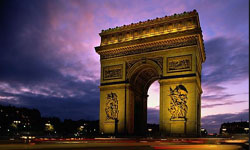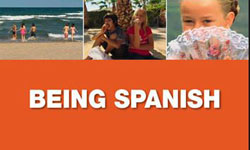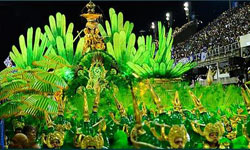How to buy drinks and croissants and get tourist information.
- Course Videos
- No subtitles
- No
How to buy drinks and croissants and get tourist information.
A look back over the last four programmes.
- Course Videos
- No subtitles
- No
A look back over the last four programmes.
How to buy things and leisure activities.
- Course Videos
- No subtitles
- No
How to buy things and leisure activities.
-
Actualiteit belicht - 21
-
Ministerie van Buitenlandse Zaken
Information about politics, law, culture, economy, drugs etc. May/June 1996
Information about politics, law, culture, economy, drugs etc. May/June 1996
-
Being Chinese
-
BBC , 2009
Eight short stories about the everyday lives of children in China
- Course Videos
- No subtitles
- 36
Eight short stories about the everyday lives of children in China
-
Being French
-
BBC
Seven short stories about the everyday lives of children in Marseille, France.
- Course Videos
- No subtitles
- 32
Seven short stories about the everyday lives of children in Marseille, France.
-
Being Spanish
-
BBC , 2009
Nine short stories about the everyday lives of children in Spain.
- Course Videos
- No subtitles
- 33
Nine short stories about the everyday lives of children in Spain.
-
Brazil Inside Out - Programme 01
-
BBC , 2006
Brazil has the biggest black population of any country outside Nigeria. Over 10 million African slaves were shipped to Brazil, six times more than to the United States. Slaves were prohibited from practising their own faiths. To avoid persecution they gave Catholic names and figures to all their African gods, giving birth to the Afro-Brazilian religion of candomblé.
- Course Videos
- English subtitles
- 30
Brazil has the biggest black population of any country outside Nigeria. Over 10 million African slaves were shipped to Brazil, six times more than to the United States. Slaves were prohibited from practising their own faiths. To avoid persecution they gave Catholic names and figures to all their African gods, giving birth to the Afro-Brazilian religion of candomblé.
-
Brazil Inside Out - Programme 02
-
BBC , 2006
Rio de Janeiro became the capital of Brazil after the discovery of gold inland in 1763. In 1960 it lost its capital city status to Brasilia.
- Course Videos
- English subtitles
- 30
Rio de Janeiro became the capital of Brazil after the discovery of gold inland in 1763. In 1960 it lost its capital city status to Brasilia.
-
Brazil Inside Out - Programme 03
-
BBC , 2006
During the 19th century, rubber made the Amazon port of Manaus, in the middle of the world's largest rainforest, one of the richest cities in the world.
- Course Videos
- English subtitles
- 30
During the 19th century, rubber made the Amazon port of Manaus, in the middle of the world's largest rainforest, one of the richest cities in the world.
-
Brazil Inside Out - Programme 04
-
BBC , 2006
São Paulo is the third biggest city in the world, after Tokyo and Mexico City. 17 million inhabitants, 4 million automobiles and 10,000 miles of streets, make Sao Paulo one of the most congested cities in the world. It has one of the worst crime rates in the world with 1500 murders last year, compared to New York's 671.
- Course Videos
- English subtitles
- 30
São Paulo is the third biggest city in the world, after Tokyo and Mexico City. 17 million inhabitants, 4 million automobiles and 10,000 miles of streets, make Sao Paulo one of the most congested cities in the world. It has one of the worst crime rates in the world with 1500 murders last year, compared to New York's 671.
-
Brazil Inside Out - Programme 05
-
BBC , 2006
Brazilian gaúchos have more in common with Argentinians and Uruguayans than they do with people from São Paulo or Rio. When their neighbours became independent, the gaúchos sought freedom from the rest of Brazil, but were defeated in 1845. Nowadays, most Brazilians from the south are descendants of the European immigrants who settled in the late 19th century.
- Course Videos
- English subtitles
- 30
Brazilian gaúchos have more in common with Argentinians and Uruguayans than they do with people from São Paulo or Rio. When their neighbours became independent, the gaúchos sought freedom from the rest of Brazil, but were defeated in 1845. Nowadays, most Brazilians from the south are descendants of the European immigrants who settled in the late 19th century.
-
Buongiorno Italia! - Episode 01
-
Joseph Cremona
Unit 1 - Buongiorno! (How to ask for something)
- Course Videos
- No subtitles
- 24
Unit 1 - Buongiorno! (How to ask for something)
-
Buongiorno Italia! - Episode 02
-
Joseph Cremona
Unit 2 - Dov'e'? (how to ask where something is)
- Course Videos
- No subtitles
- 24
Unit 2 - Dov'e'? (how to ask where something is)
-
Buongiorno Italia! - Episode 03
-
Joseph Cremona
Unit 3 - Quanto costa? (Buying things and asking the price)
- Course Videos
- No subtitles
- 24
Unit 3 - Quanto costa? (Buying things and asking the price)
-
Buongiorno Italia! - Episode 04
-
Joseph Cremona
Unit 4 - Buono, buonissimo (How to say you like something)
- Course Videos
- No subtitles
- 24
Unit 4 - Buono, buonissimo (How to say you like something)
-
Buongiorno Italia! - Episode 05
-
Joseph Cremona
Unit 5 - Rivediamo un po'.. (Revision 1)
- Course Videos
- No subtitles
- 24
Unit 5 - Rivediamo un po'.. (Revision 1)
-
Buongiorno Italia! - Episode 06
-
Joseph Cremona
Unit 6 - A che ora parte? (Going places)
- Course Videos
- No subtitles
- 24
Unit 6 - A che ora parte? (Going places)
-
Buongiorno Italia! - Episode 07
-
Joseph Cremona
Unit 7 - Cosa c'e' da vedere? (Getting there and looking around)
- Course Videos
- No subtitles
- 24
Unit 7 - Cosa c'e' da vedere? (Getting there and looking around)
-
Buongiorno Italia! - Episode 08
-
Joseph Cremona
Unit 8 - Ha una camera? (Finding a room)
- Course Videos
- No subtitles
- 24
Unit 8 - Ha una camera? (Finding a room)






























